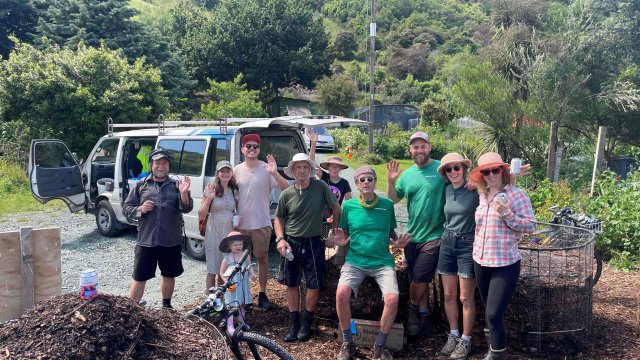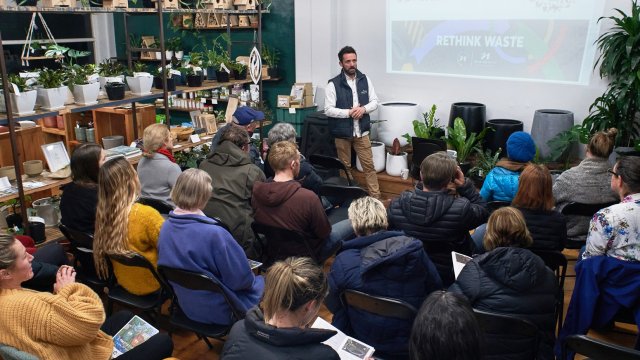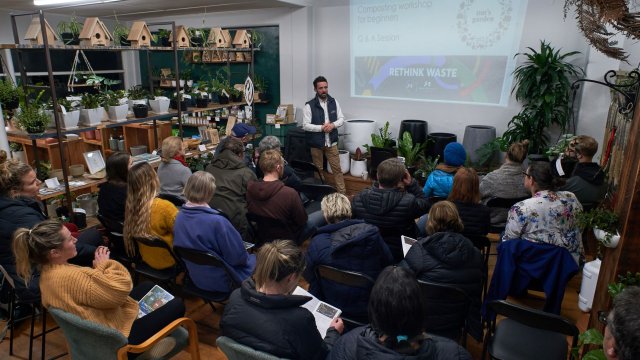Composting – not just a pretty bin…
21/05/2019 4:58amDid you get yourself a compost bin using Council’s Kickstart compost voucher? If not, you’ve still got a couple of days to get the full $30 subsidy – after 31 May it drops back to $20.
Composting is a process that mimics nature by recycling organic material and capturing carbon to return to the soil. It is good for recycling most types of food and garden waste. The resulting compost is rich in organic matter and makes a great natural fertiliser and soil conditioner for your garden but it also helps with reducing our carbon emissions.
How to compost
Buying your bin is just the start. Once you’ve got your bin assembled, check out our easy beginners guide to composting video and the ‘how to compost’ online resource, and start turning your kitchen waste to garden gold.
Why should you compost?
Why we compost is as important as how.
From a purely personal cost-benefit perspective, composting means you have less waste to dispose of, so you save on the cost of rubbish bags and landfill fees. Green waste and food waste can make up a considerable amount of your household waste, so composting can save you quite a bit of money.
On top of that, composting rather than putting everything into your household waste bin also helps you do your bit to reduce greenhouse gases by keeping organic waste out of landfill.
Organic waste sent to landfill is buried and so it decomposes without oxygen. This process produces methane, which is 26 times more potent than carbon dioxide as a greenhouse gas and is a significant contributor to global greenhouse gas emissions.
Composting is decomposing with oxygen, in a process which reduces or prevents the release of methane. Plus, the carbon-rich compost produced is mixed back into the soil, making the carbon available to plants and microbes rather than releasing it into the air.




